Mental Health and the Holidays
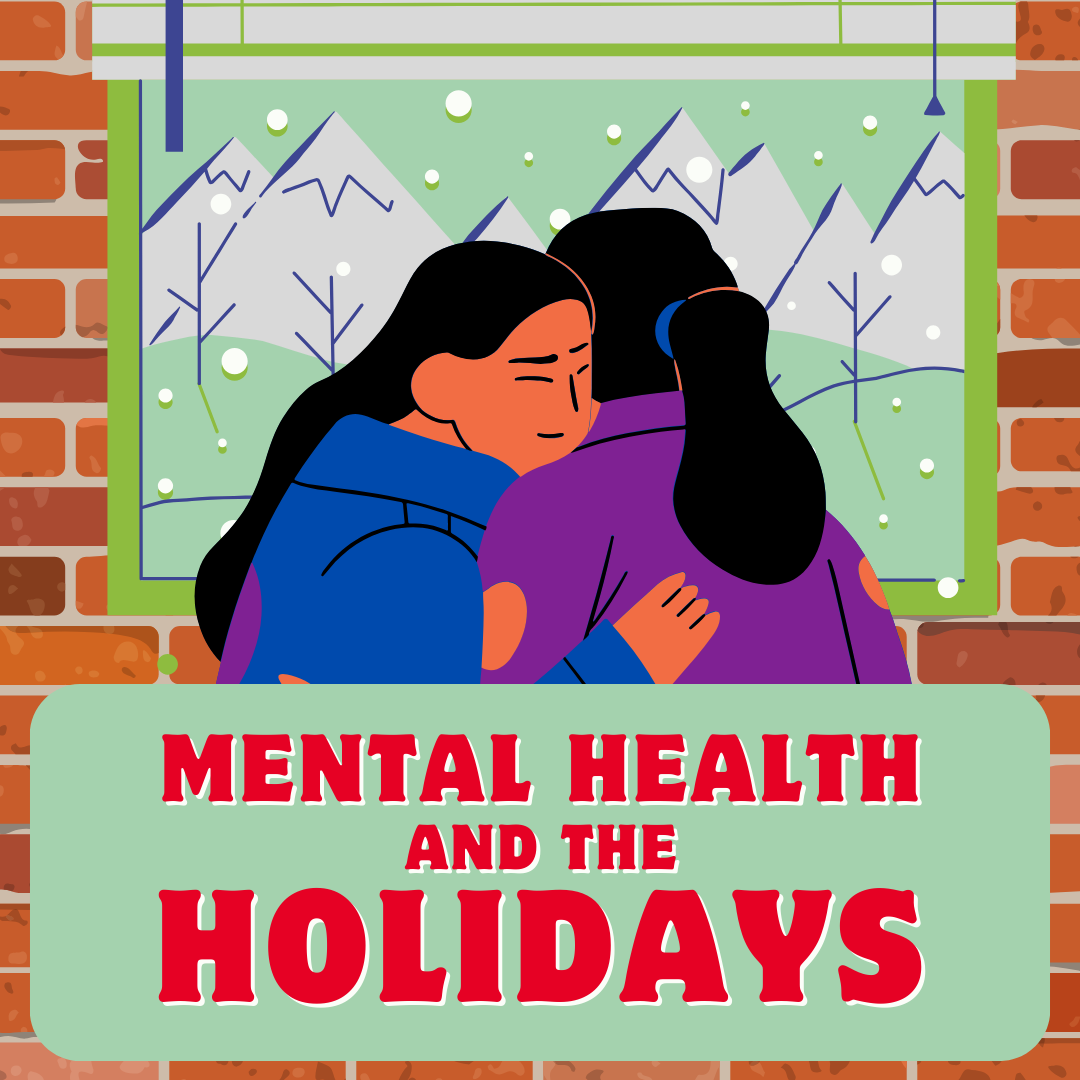
The holiday season is often considered the happiest time of year, full of quality time with friends and family sharing traditions and celebrations. However, it can be a particularly difficult time for many. Recent studies by the American Psychological Association and the National Alliance on Mental Illness have found that the holidays can bring on stronger feelings of stress, depression, and even substance use/misuse, and that those living with mental health conditions often experience worse symptoms during the holidays. [1]
Social expectations, grief, strained family relationships, tight budgets, and the change in weather can all make challenging thoughts and emotions harder. If you are feeling these stressors, you are not alone! Here are some tips to help manage the negative impact that the holiday season can have on mental health:
Identify holiday triggers
Be gentle and generous with yourself
Set boundaries
Exercise, eat well, and be sure to get enough sleep
Reach out for support
Limit social media use, or take a break from the apps
Be realistic about your holiday expectations
Sometimes, spending time with family can be stressful, and it is important to set boundaries that honor what you are able to control in those situations. That can look like limiting the amount of time you spend at someone’s house, or asking that your personal beliefs not be debated at the dinner table. Check out this blog for tips on how to set boundaries with your family.
Talking with loved ones, a mental health professional, or both about how you are feeling can help you work through negative thoughts and emotions. Be sure to give yourself permission to ask for help! *(If you need resources, FISH has included some free hotlines below that you can use. Remember – you’re not alone!)
It is very easy to fall into the cycle of comparing ourselves to others when we are on social media. Limiting social media use can help prevent that from happening.
There is a lot of pressure to buy the best gift or have the perfect family meal prepared during the holiday season. That can be especially stressful when finances are tight. Be kind to yourself, and know that you are doing your best and that is enough! Setting a budget can help manage the expenses of holiday gifts, and spacing out errands can also help balance the stress of shopping during busy times. [2, 3, 4, 5, 6]
Major Depressive Disorder with a Seasonal Pattern (also known as Seasonal Affective Disorder, or SAD)
This time of year can also be difficult on our mental health because the seasonal changes. Major Depressive Disorder with a Seasonal Pattern (also known as seasonal affective disorder, or SAD) is a type of depression that is caused by chemical changes in the brain and body that occur as we transition to different seasons. Mental health professionals can help diagnose and provide treatment options. Some ways to help with symptoms on a day to day basis include exercise, self care, and spending time with loved ones (in addition to the tips mentioned above). [7]
Grief During the Holidays
The holiday season can be an extremely difficult time for people experiencing the grief of losing a loved one. It can bring back memories and make the loss feel heavier. It is important to acknowledge your feelings and give yourself permission to feel them – it is okay to be sad! It can also be helpful to anticipate that your feelings of grief may be stronger so that you are prepared for sad emotions. You can still find moments of joy with the people around you! It is important to make time to take care of yourself, and sometimes that means not having to uphold all your family traditions if they are painful to go through without your loved one. You can find new ways to celebrate and honor those you have lost. [8]
Check out these videos to learn more about how the holidays impact our mental health:
Mental Health Hotlines
988 Lifeline:
Phone: Call or text 988
Website: https://988lifeline.org/
About: When people call, text, or chat with the 988 Lifeline, they are connected to trained counselors that are part of the existing 988 Lifeline network, made up of over 200 local crisis centers. These counselors are trained to provide free and confidential emotional support and crisis counseling to people in suicidal crisis or emotional distress, and connect them to resources. These services are available 24 hours a day, seven days a week, across the United States.
Services Provided:
24/7 Crisis support
Spanish language line available by pressing 2
More than 240 languages supported through a tele-interpretor service
LGBTQ+ callers can press 3 to be connected to a counselor specifically trained in supporting LGBTQ+
Mental Health Partners:
Warm Line: (303) 545-0852
Main Phone: (303) 443-8500
Address: 1455 Dixon Avenue, Suite 140, Lafayette, CO 80026
Email: communityoutreach@mhpcolorado.org
Website: https://www.mhpcolorado.org/
About: The Community Health Worker (CHW) Team at MHP assists community members in navigating access to behavioral health, physical health, and local resources including housing support, benefits, food assistance, and other basic needs.
MHP is at FISH every other Wednesday (1st & 3rd) from 2-4pm!
I Matter:
Website: https://imattercolorado.org/
About: I Matter provides up to six free therapy sessions for youth (up to age 18) in Colorado and reimburses participating licensed therapists, which are licensed clinicians from agencies and independent contractors. Services are available in Spanish and English.
Services Provided:
Up to 6 free therapy sessions (mostly virtual, some in person); after completing 3-6 sessions, I Matter’s care navigators can help youth after their free sessions end and connect the youth with providers who accept insurance, such as Medicaid or their private insurance.
Notes:
- https://www.psychologytoday.com/us/blog/logged-in-and-stressed-out/202211/minding-your-mental-health-holiday-season
- https://www.psychologytoday.com/us/blog/logged-in-and-stressed-out/202211/minding-your-mental-health-holiday-season;
- https://www.nami.org/Blogs/NAMI-Blog/December-2018/Avoiding-Holiday-Stressors-Tips-for-a-Stress-Free-Season;
- https://www.nami.org/Blogs/NAMI-Blog/November-2020/Surviving-Painful-Holiday-Emotions;
- https://namica.org/blog/handling-stress-during-the-holiday-season/;
- https://www.psychologytoday.com/us/blog/logged-in-and-stressed-out/202211/minding-your-mental-health-holiday-season
- https://www.nami.org/Blogs/NAMI-Blog/December-2018/Avoiding-Holiday-Stressors-Tips-for-a-Stress-Free-Season
- https://www.nami.org/Blogs/NAMI-Blog/December-2018/Avoiding-Holiday-Stressors-Tips-for-a-Stress-Free-Season

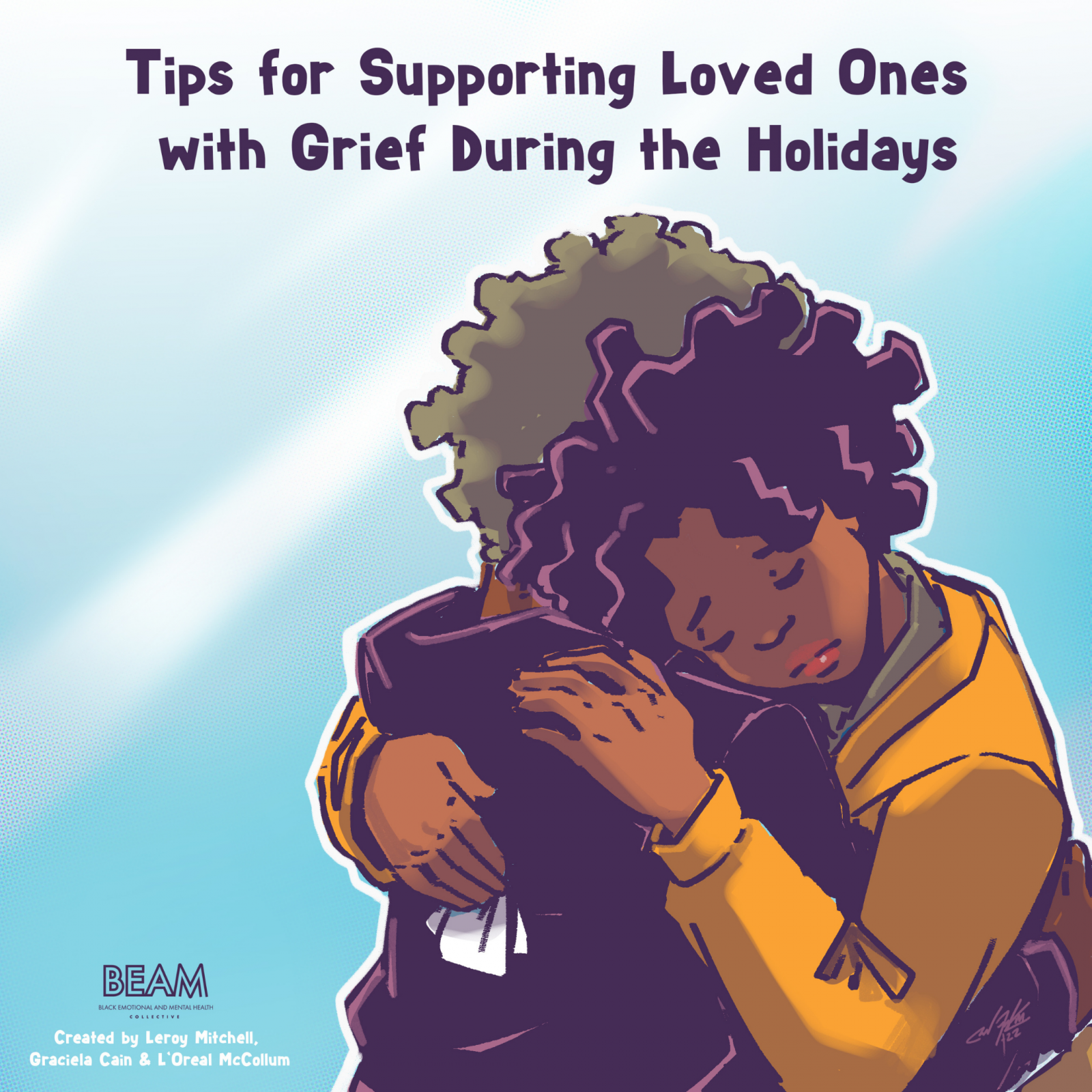
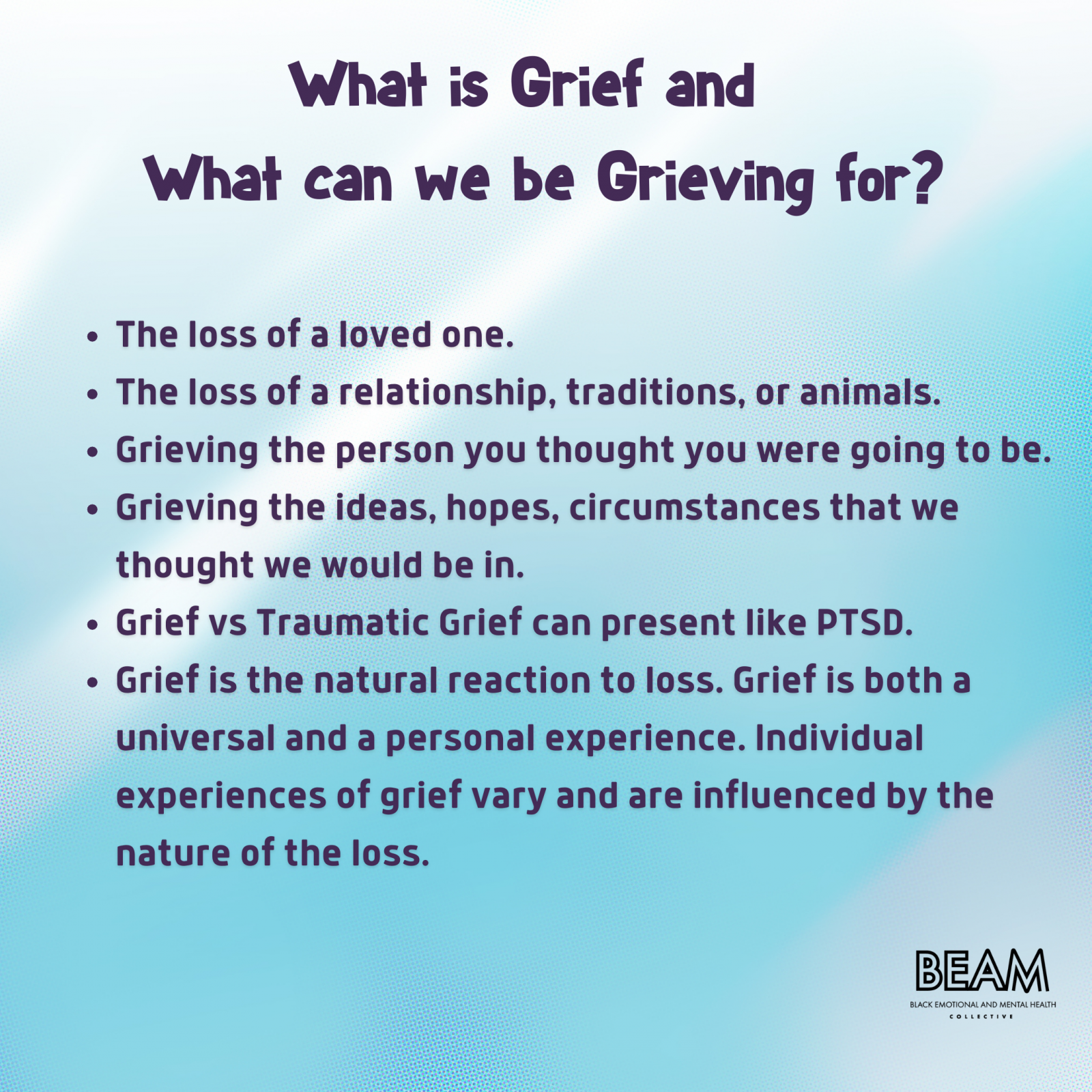
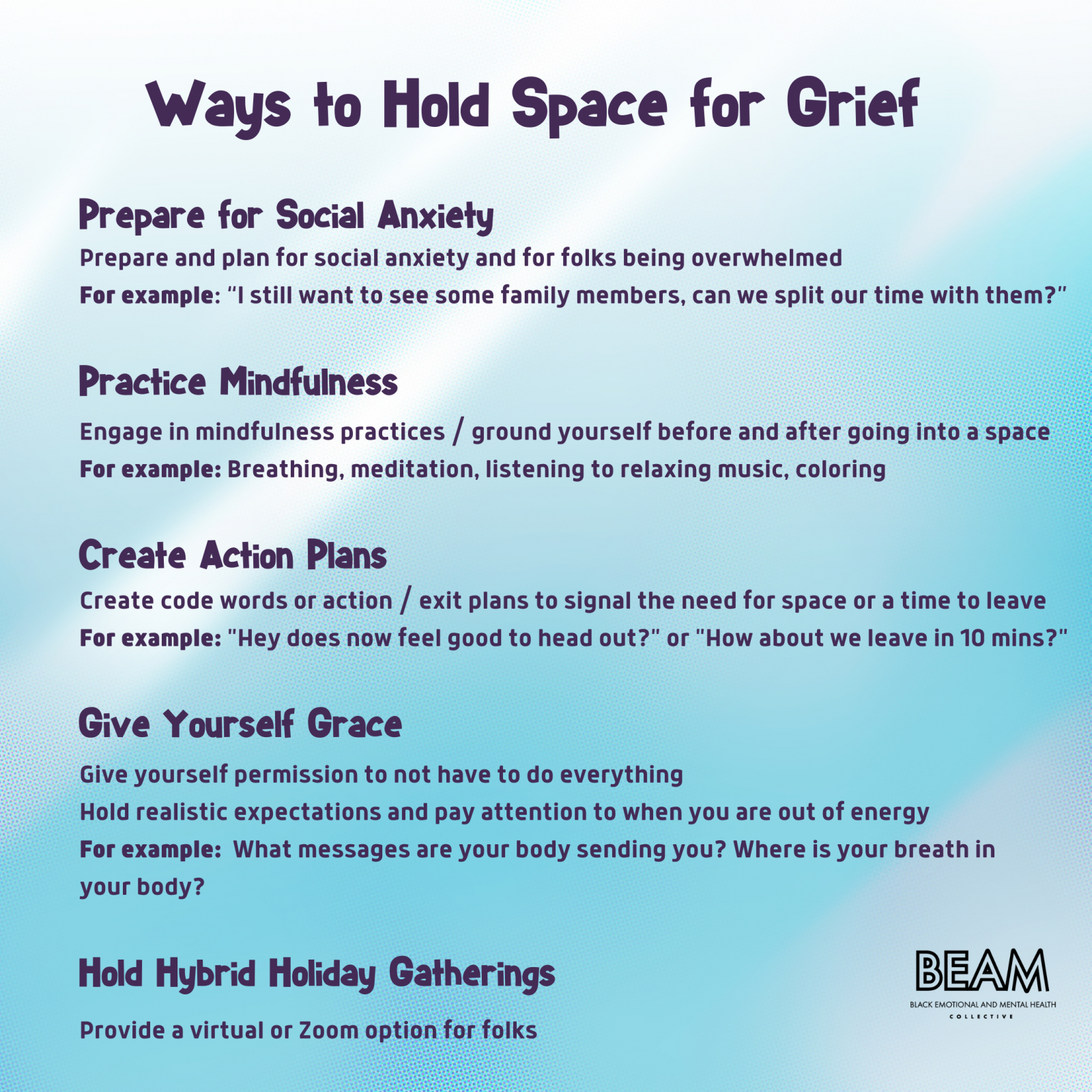
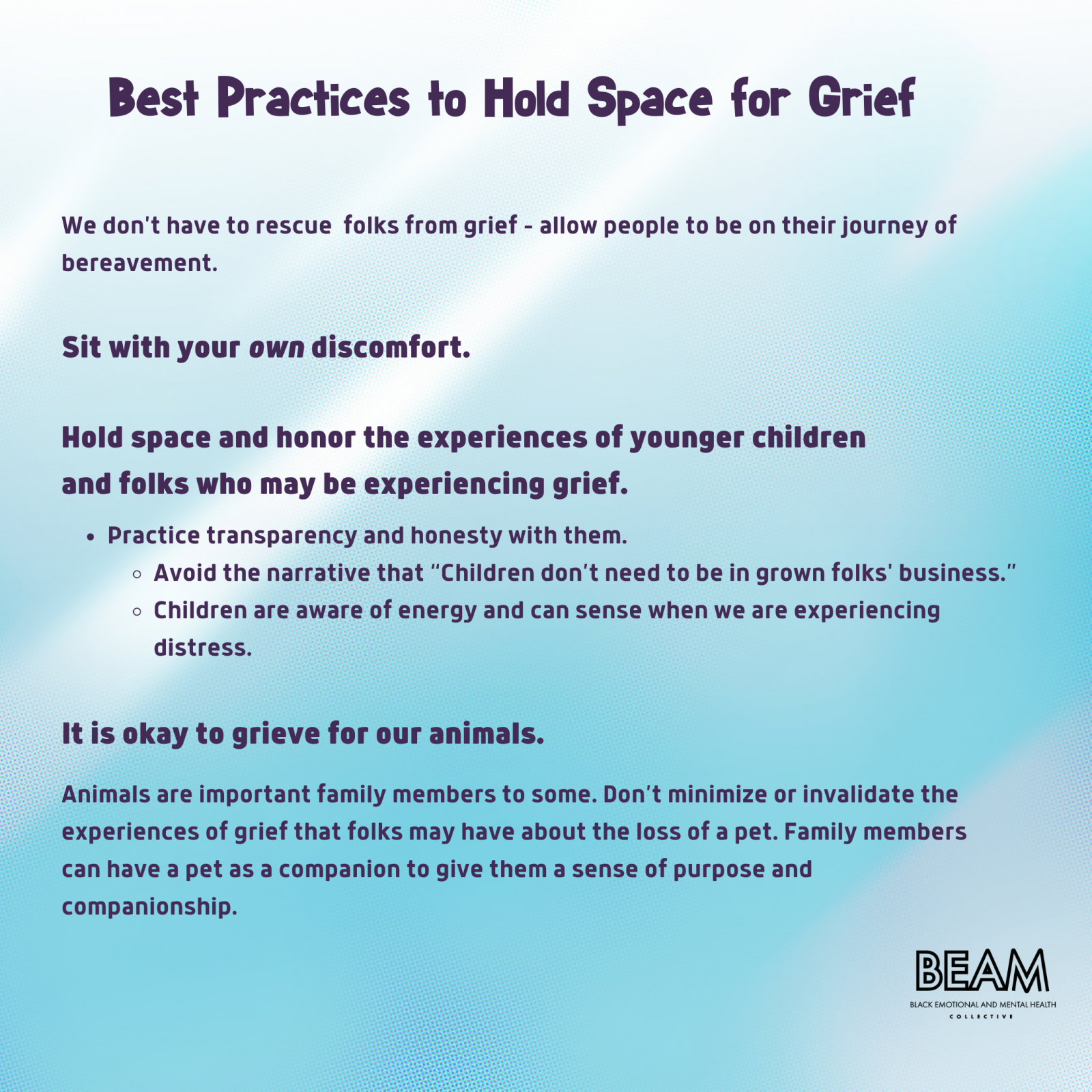
0 Comments